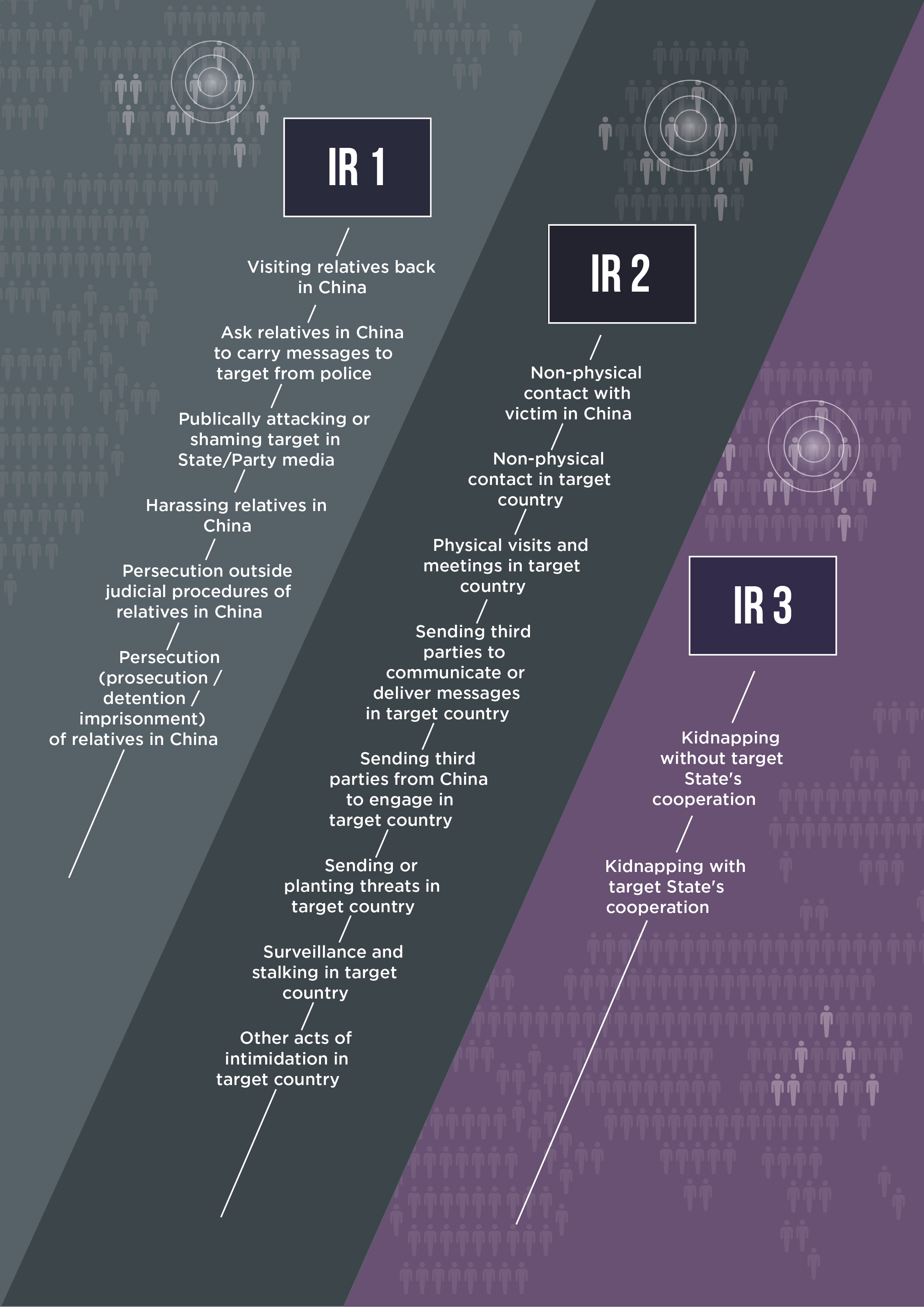
This section contains materials related to China’s growing use of extrajudicial measures to return individuals to China, often employed in combination with extradition or other police cooperation mechanisms.
These extra-judicial measures are part of China’s transnational repression toolkit.
As of yet, there is no universal definition of transnational repression. However, Freedom House defines transnational repression as “governments reaching across borders to silence dissent among diasporas and exiles, including through assassinations, illegal deportations, abductions, digital threats, Interpol abuse, and family intimidation. It is a daily assault on civilians everywhere — including in democracies -” and severely undermines the enjoyment of fundamental freedom and rights.
Resolution 2509 “Transnational repression as a growing threat to the rule of law and human rights”, adopted by the Parliamentary Assembly of the Council of Europe on June 23, 2023, describes four types methods of transnational repression:
China employs all the above methods to force individuals to return to China outside, or in combination with, formal bilateral judicial cooperation mechanisms.
For a wider overview of Chinese and Hong Kong authorities’ transnational repression efforts beyond forced repatriation, see a non-exhaustive overview of reports and datasets by Safeguard Defenders and other human rights organizations in the PRC TNR resources file on the top right of this page.
Since Xi Jinping's appointment as CCP General Secretary and under the guise of anti-corruption and countering terrorism, China has massively stepped up its long-arm policing efforts around the globe, in particular with the launch of Operations Fox Hunt (2014) and Sky Net (2015).
As described in Safeguard Defenders’ January 2022 report Involuntary Returns, the best definition of the forced returns toolkit employed by the Chinese authorities can be found in the written legal interpretation on the matter of international fugitive recovery according to article 52 the National Supervision Law (2018) by the CCP’s Central Commission for Discipline Inspection (CCDI) and its State front, the National Commission of Supervision of the CCDI:
See the full official Chinese document linked at the bottom or a partial translation into English, downloadable as PDF on the top right.
Safeguard Defenders defines China's involuntary returns into three categories (IR1, IR2 and IR3) as explained in the graphic below:

According to the (limited) official data published annually by the CCDI, persuade to return accounts for the vast majority of forced returns for prosecution to China, with estimates running to over 90 percent of cases.
It is important to highlight that the above extrajudicial methods are often used in lieu of formal extradition requests. As China's Ministry of Foreign Affairs admitted in response to Safeguard Defenders’ reports on the issue: "Bilateral treaties are very cumbersome and Europe is reluctant to extradite to China. I don't see what is wrong with pressuring criminals to face justice…”
Extrajudicial methods - in particular threats or punishment of family members in China - are also used in combination with formal extradition requests to dissuade the targeted individual from resisting the procedure and taking full advantage of the judicial safeguards afforded under international law.
These practices not only severely undermine targeted individuals fundamental rights, but also blatantly violate the territorial and judicial sovereignty of the host country involved. They constitute a direct attack on the absolute principle of non-refoulement under the UN Convention Against Torture and the UN Convention on the Rights of Refugees.
By Safeguard Defenders